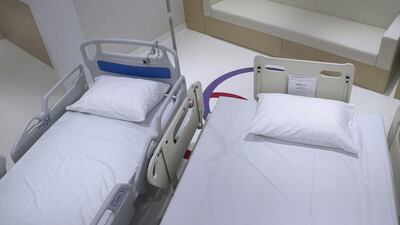Nobody wants to talk about death, either their own or that of thier loved ones. But it is inevitable that we will die and – except in the case of accident or other sudden event – our deaths will occur as a consequence of an illness that has to be managed. As The National reported this week, for cultural, legal and social reasons, the UAE will be unable to meet World Health Organisation global targets for palliative care. Experts say that not enough attention has been paid to the matter and that new policies and procedures must be put in place.
The important thing to recognise is that palliative care is distinct from euthanasia or assisted dying. This is about making people as comfortable as possible in the last months, weeks and days of their lives. To do that requires a plan of management. For many people, it will involve full-time nursing care and the application of painkilling medication. As we reported, the use of opiates to ease a patient’s suffering has become the subject of discussion. Concerns about the risk of addiction are misplaced in the context of a dying person.
A further dilemma is whether to embrace the policy whereby some other countries where nurses and doctors are instructed not to resuscitate certain patients. There are arguments for and against such a policy. Some would argue that if a person has a terminal condition, it is better to let them die naturally than to put them through the trauma of an aggressive resuscitation procedure that probably would not succeed and, even in the best scenario, would prolong life only for a very short time. Others would say that doctors are ethically and morally obliged to intervene to keep all their patients alive.
There are no easy answers, but there must be conversations about these issues: certainly among medical professionals and ethicists, but also in family homes and communities more broadly. As for a possible legal framework, the Federal National Council is well placed to debate, formulate and suggest any changes in policy. It may be that legal measures have to be put in place to avoid confusion and to protect family members and carers.
Ultimately, there is no more personal issue than dying. In the first instance, anybody who has strong feelings about how, where and under which circumstances they would like to spend their final days should make that known to the people closest to them.

